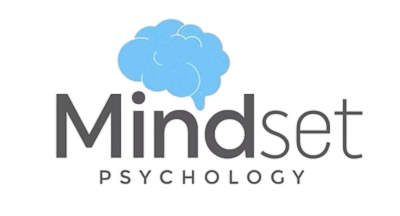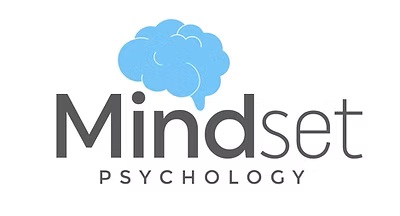Navigating through life’s ups and downs can be challenging for anyone, but for those in the LGBTQ+ community, these challenges are often compounded by additional layers of societal stigma, discrimination, and at times, a lack of support from loved ones. The journey towards self-acceptance and finding one’s place in the world can be particularly tumultuous, with many facing hurdles that can lead to feelings of isolation, anxiety, and depression. It’s not just about the day-to-day struggles but about the impact these experiences have on one’s mental health and overall well-being. In a society that is still learning to embrace diversity in all its forms, the importance of having access to mental health care that is not only understanding but also affirming one’s identity cannot be overstated.
Mindset Psychology is an institution that stands at the forefront of offering tailored LGBTQ+ counseling services designed to meet their unique needs. Recognizing the profound impact that societal attitudes can have on an individual’s mental health, Mindset Psychology is committed to bridging the gap between identity and mental health. With a team of experienced therapists who are not just allies but advocates of this community, Mindset Psychology offers a sanctuary where individuals can explore their feelings, challenges, and aspirations in a supportive and non-judgmental environment.
This blog aims to delve into the critical role that specialized LGBTQ+ counseling plays in nurturing mental health, highlighting the specific challenges faced by the community and how Mindset Psychology’s an inclusive approach to care can make a significant difference. Whether you’re seeking support for depression, or anxiety, or simply looking for a space to understand yourself better, this exploration will underscore the importance of choosing a mental health partner who truly understands the intricacies of such experiences. Join us as we unfold the layers of how specialized counseling can transform lives and offer a beacon of hope and understanding in the journey toward mental wellness.
LGBTQ+ Challenges And Depression
The mental health landscape for such individuals is fraught with unique challenges and hurdles that stem not only from internal struggles with identity and self-acceptance but also from external pressures and societal stigma. This complex interplay of factors underscores the critical need for specialized counseling—a therapeutic approach that is not just inclusive but also deeply understanding and affirming of their identities.
Such specialized counseling goes beyond the traditional scope of therapy by acknowledging and addressing the specific psychological and emotional needs of these individuals. This form of counseling recognizes the diverse spectrum of sexual orientations and gender identities, and it is tailored to combat the negative effects of minority stress, discrimination, and societal rejection. Such specialized care is instrumental in fostering a safe and supportive environment where LGBTQ+ clients can openly discuss their feelings, experiences, and challenges without fear of judgment or misunderstanding.
One of the primary benefits of specialized counseling is its focus on affirming the client’s identity. Affirmation in therapy means acknowledging and supporting a client’s gender identity and sexual orientation as valid and normal variations of human diversity. This approach is crucial for building self-esteem, promoting self-acceptance, and mitigating internalized homophobia or transphobia.
Moreover, specialized counselors are equipped with the knowledge and skills to navigate complex issues such as coming out, transitioning, relationship dynamics, and family acceptance. They understand the nuances of their relationships and the specific challenges faced within these contexts, such as navigating non-traditional family structures or dealing with societal expectations.
Another vital aspect of specialized LGBTQ+ counseling is its role in addressing and healing from trauma. Many individuals have experienced bullying, discrimination, or violence, leading to traumatic stress and increased vulnerability to mental health disorders. A counselor with expertise in such issues can help clients work through these traumatic experiences, offering strategies for coping and healing that are sensitive to the client’s specific experiences and identity.
The Importance of Specialized LGBTQ+ Counseling
The mental health landscape for LGBTQ+ individuals is fraught with unique challenges and hurdles that stem not only from internal struggles with identity and self-acceptance but also from external pressures and societal stigma. This complex interplay of factors underscores the critical need for specialized counseling—a therapeutic approach that is not just inclusive but also deeply understanding and affirming of their identities.
Specialized counseling goes beyond the traditional scope of therapy by acknowledging and addressing the specific psychological and emotional needs of these individuals. This form of counseling recognizes the diverse spectrum of sexual orientations and gender identities, and it is tailored to combat the negative effects of minority stress, discrimination, and societal rejection. Such specialized care is instrumental in fostering a safe and supportive environment where clients can openly discuss their feelings, experiences, and challenges without fear of judgment or misunderstanding.
One of the primary benefits of specialized counseling is its focus on affirming the client’s identity. Affirmation in therapy means acknowledging and supporting a client’s gender identity and sexual orientation as valid and normal variations of human diversity. This approach is crucial for building self-esteem, promoting self-acceptance, and mitigating internalized homophobia or transphobia.
Moreover, specialized counselors are equipped with the knowledge and skills to navigate complex issues such as coming out, transitioning, relationship dynamics, and family acceptance. They understand the nuances of their relationships and the specific challenges faced within these contexts, such as navigating non-traditional family structures or dealing with societal expectations.
Mindset Psychology’s Holistic And Inclusive Approach
Mindset Psychology’s approach to counseling is both holistic and inclusive, considering all aspects of an individual’s life, including fitness, diet, spirituality, and other lifestyle factors that contribute to overall well-being. Their comprehensive care philosophy ensures that every patient receives the support they need to navigate their mental health journey successfully. By treating a wide range of diagnoses and prioritizing patient care, Mindset Psychology creates a supportive environment where individuals feel seen, heard, and valued.
Moving Forward
For those within the LGBTQ+ community, finding a space where identity and mental health are both understood and addressed with care can be transformative. Mindset Psychology’s commitment to LGBTQ+ counseling offers just that—a bridge between identity and mental health, ensuring that every individual can find the support and understanding they need. If you or someone you know is part of this community and seeking supportive, holistic care, Mindset Psychology welcomes you to explore their services and take the first step towards a healthier, happier you.



